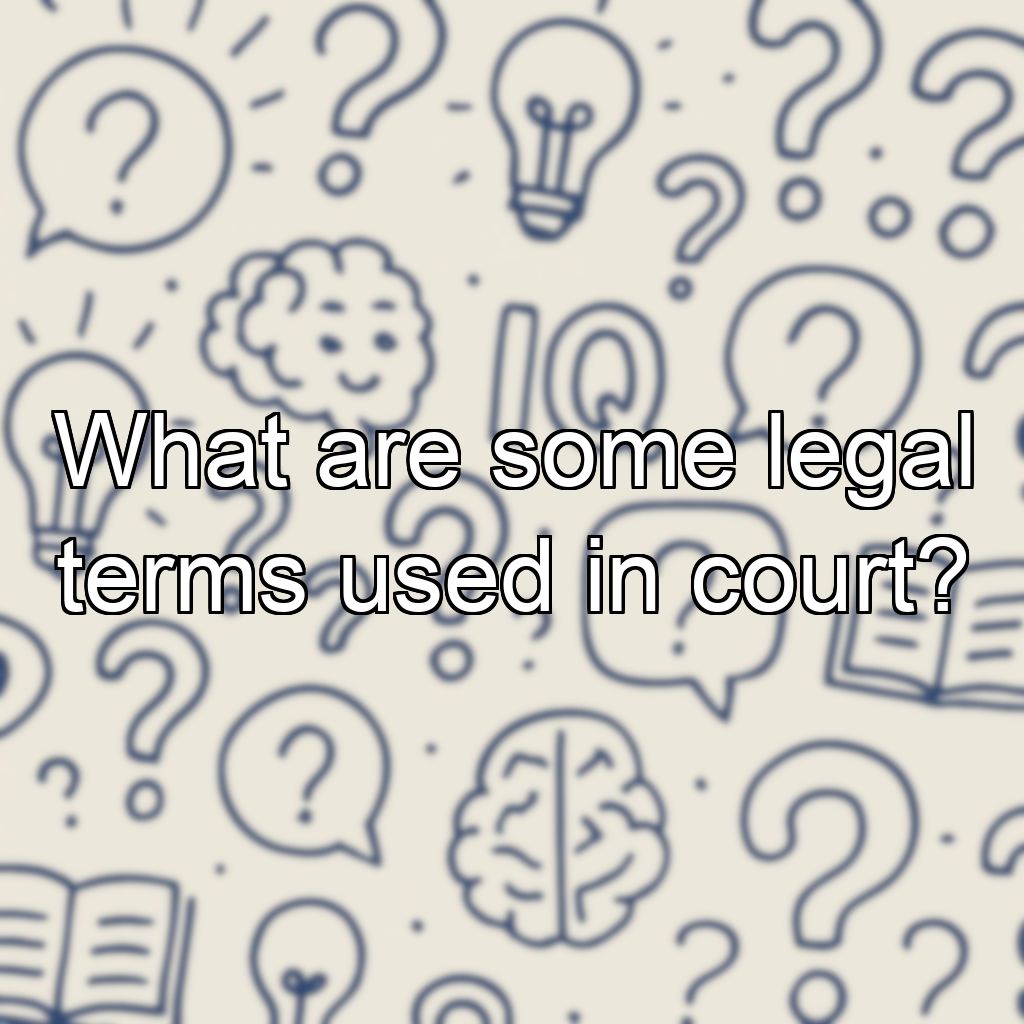What are some legal terms used in court?

Common Legal Terms Used in Court
1. Plaintiff and Defendant
The plaintiff is the person or party who initiates a lawsuit by presenting a case against another in a court of law. The defendant is the person or party against whom the lawsuit is filed, defending against the claims made by the plaintiff.
2. Complaint and Answer
The complaint is the initial document filed by the plaintiff outlining the allegations and legal reasons for the lawsuit. The answer is the defendant’s formal response to the complaint, admitting or denying the allegations.
3. Evidence and Testimony
Evidence includes documents, objects, or testimony presented to establish the facts of a case. Testimony is the statements given by witnesses under oath during the trial.
4. Trial and Verdict
The trial is the legal process where evidence is presented and arguments are made before a judge or jury. The verdict is the decision made by the jury or judge regarding the guilt or innocence of the defendant or the resolution of the dispute.
5. Sentencing and Appeal
Sentencing occurs after a conviction, where the court determines the punishment. An appeal is a request to a higher court to review and change the decision of a lower court.